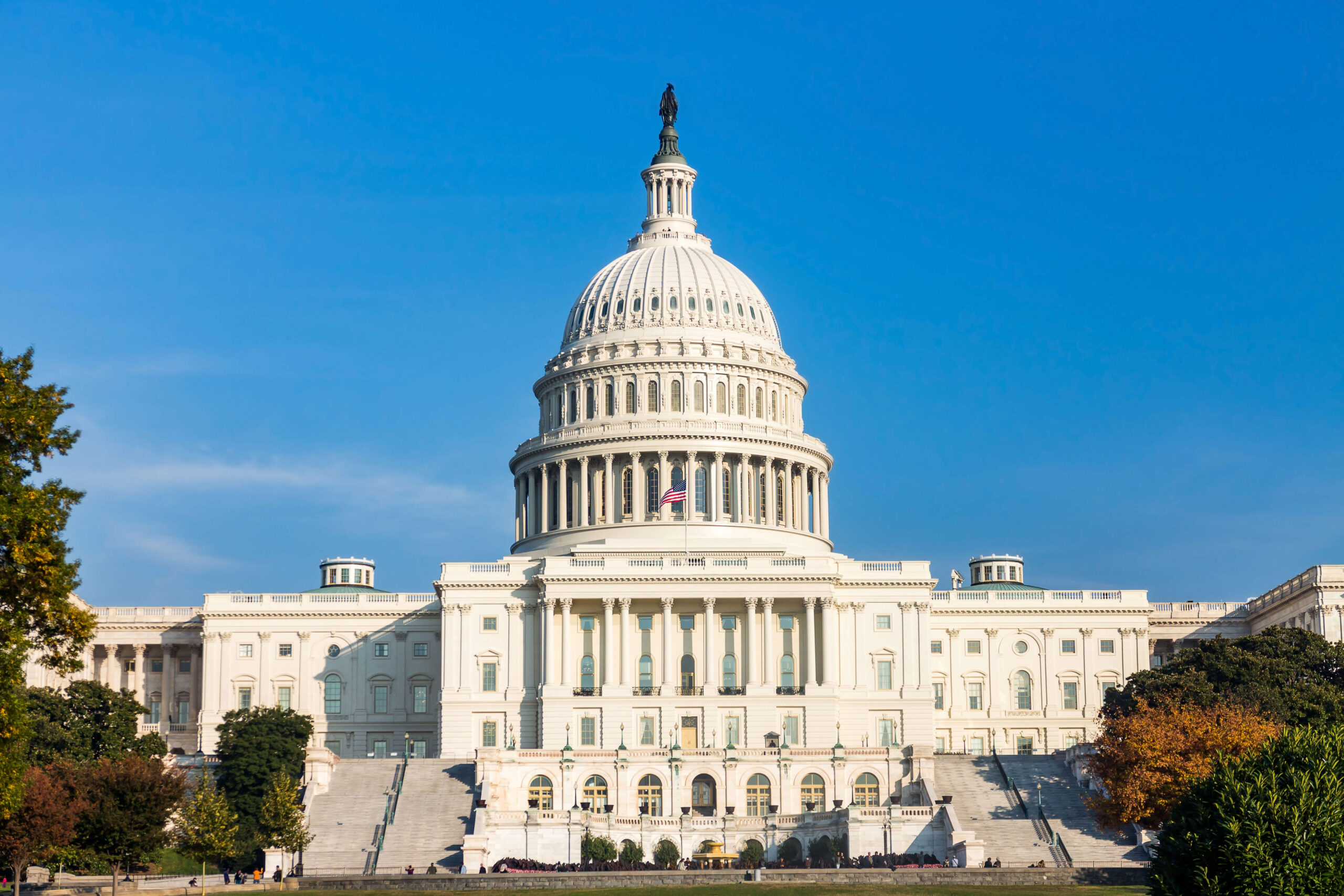Joe Says “No.” Over the last several weeks, the Buzz has discussed congressional efforts to pass both a bipartisan “hard” infrastructure bill (this passed the U.S. Senate and is waiting in the U.S. House of Representatives), as well as a partisan $3.5 trillion “human infrastructure” bill using the reconciliation process. Further, back on July 16, 2021, the Buzz threw a bit of cold water on the idea that Senate Democrats had reached a deal on the human infrastructure package, warning, “In the Senate, there is no room for error, as one Democratic defector could scuttle the whole thing.” Well, we hate to say we told you so, but on September 2, 2021, Senator Joe Manchin (D-WV) penned an op-ed in the Wall Street Journal, entitled, “Why I Won’t Support Spending Another $3.5 Trillion.” Senator Manchin writes, “Instead of rushing to spend trillions on new government programs and additional stimulus funding, Congress should hit a strategic pause on the budget-reconciliation legislation.” Recall that this reconciliation package is anticipated to contain provisions such as increased damages for employers that violate labor law, as well as investments in universal paid family leave, childcare, and the like. Senator Manchin’s position isn’t entirely new—he has been warning about the cost of the package for some time—and could just be a way to gain political leverage, but it still makes reconciliation proponents’ jobs a bit more challenging.
Democrats in Majority at NLRB. Union attorney David Prouty was sworn in as a member of the National Labor Relations Board (NLRB) on August 28, 2021. The action gives Democrats a three-to-two majority on the Board and finalizes a scenario that the Buzz forecasted when Democrats prevailed in the January 2021 election runoffs for U.S. Senate seats in Georgia. The Buzz recently discussed some of the issues that NLRB General Counsel Jennifer Abruzzo wants to put before the Board, such as redefining protected concerted activity and independent contractor status. Previously, on the heels of President Joe Biden’s inauguration, Tom Davis wrote about what stakeholders could expect from a Democratic-majority Board. Stakeholders should expect a busy fall season from the Board, and they may want to be on the lookout for the Board’s regulatory proposals when the fall regulatory agenda is released.
Employer Property Rights Case Teed Up for NLRB. Perhaps jumping to the top of the new Board’s to-do list is a case concerning union officials’ access to employers’ property. This is because a federal court in Washington, D.C., this week overturned a 2019 NLRB ruling that expanded the circumstances by which property owners could prohibit an on-site contractor’s off-duty employees from engaging in leafletting activity on the property. The new Democratic-controlled Board will now have an opportunity to issue a new ruling on the case and set a new standard concerning the balancing of property rights and organizational activity.
OFCCP Wants EEO-1 Compensation Data. On September 2, 2021, the Office of Federal Contract Compliance Programs (OFCCP) published a notice concerning the now defunct EEO-1 Component 2 compensation and hours-worked data collection. More specifically, the notice rescinds a prior notice issued by OFCCP in 2019 indicating that the agency “would not ‘request, accept, or use Component 2 data, as it does not expect to find significant utility in the data.’” OFCCP now states that “analysis of compensation data could improve OFCCP’s ability to efficiently and effectively investigate potential pay discrimination.” This announcement from OFCCP perhaps confirms what many policy watchers have anticipated: that the Biden administration, through OFCCP or the U.S. Equal Employment Opportunity Commission (EEOC), will attempt to enact a pay data collection requirement. The current EEO-1 form—which does not contain Component 2—is set to expire in June 2023. Leigh Nason and Lauren Hicks have the details.
COVID-19 UI Programs to Expire. On September 6, 2021, three federal pandemic-related unemployment insurance (UI) programs initially created by the CARES Act will expire. This includes: (1) the Pandemic Unemployment Assistance (PUA) program, for independent contractors and other workers who are not usually eligible for unemployment insurance; (2) the Pandemic Emergency Unemployment Compensation (PEUC) program, which provides additional weeks of unemployment insurance benefits to individuals who have exhausted their state unemployment benefits; and (3) the Federal Pandemic Unemployment Compensation (FPUC) program, which initially provided UI recipients with a $600 weekly supplement (later reduced to $300 per week). As of this writing, there does not seem to be any significant effort underway in Congress to extend the programs.
Will OSHA Let COVID-19 ETS Expire? President Biden’s nominee to run the Occupational Safety and Health Administration (OSHA), Doug Parker, has been waiting for a confirmation vote on the floor of the U.S. Senate since mid-June 2021. But the lack of a confirmed assistant secretary did not prevent OSHA from implementing its COVID-19 emergency temporary standard (ETS), nor has it prevented OSHA from determining the immediate fate of the ETS. At an OSHA-sponsored online conference this week, an OSHA official reportedly indicated that the ETS may be permitted to expire on December 21, 2021. Apparently, rather than convert the ETS to a permanent standard upon its expiration, OSHA will initiate rulemaking on airborne pathogens generally.
Happy Birthday, Treasury Department. On September 2, 1789, President George Washington signed into law an act establishing the U.S. Department of the Treasury. The act provided, “That there shall be a Department of Treasury, in which shall be the following officers, namely: a Secretary of the Treasury, to be deemed head of the department; a Comptroller, an Auditor, a Treasurer, a Register, and an Assistant to the Secretary of the Treasury, which assistant shall be appointed by the said Secretary.” History buffs and Broadway fans are no doubt aware that Alexander Hamilton became the first secretary of the treasury nine days later. Upon its creation, the Treasury Department instantly became the largest agency in the federal government with 39 employees. Today, the department has more than 100,000 employees around the world.





